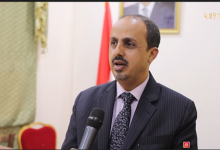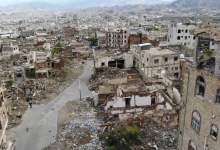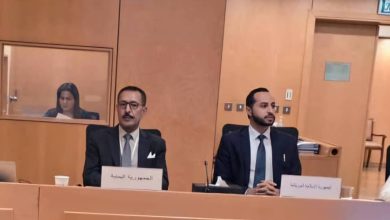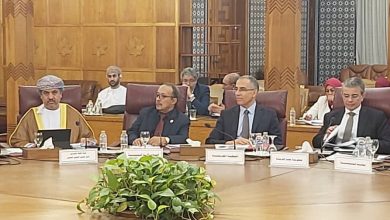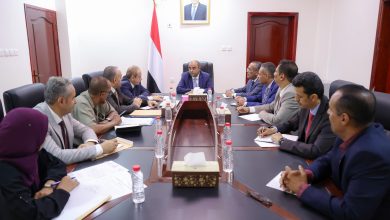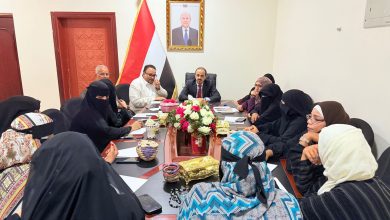The Health Minister participates in the first Arab conference on the role of migrating Arab health professionals.
Minister of Public Health Participates in First Arab Conference on Migrant Health Professionals
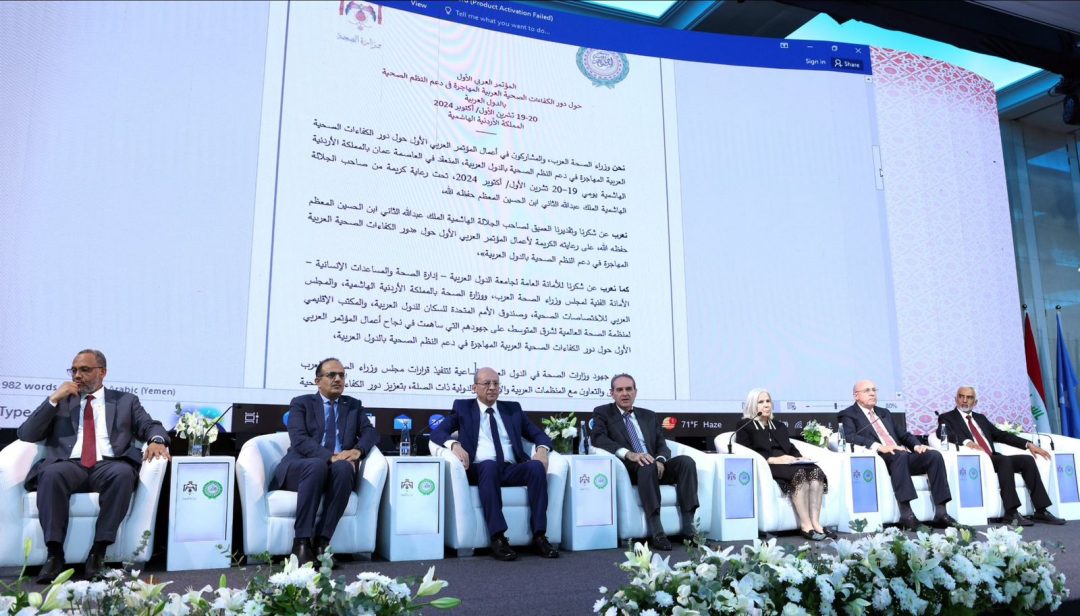
Dr. Qasem Bahibeh, the Minister of Public Health and Population, participated today in the First Arab Conference on the Role of Migrant Health Professionals in Supporting Health Systems in Arab Countries. The event took place in the Hashemite Kingdom of Jordan, bringing together health leaders and experts from across the region.
Strategic Importance of Migrant Health Professionals
The conference issued a statement highlighting the critical need for strategies that leverage the skills of migrant health professionals. These strategies aim to enhance health sectors in Arab countries, activate the roles of these professionals, and create an environment conducive to their contributions. The statement called for the establishment of a comprehensive database that includes Arab health professionals living abroad. This database would facilitate the implementation of regional and national health programs and strategies, drawing on the expertise of these professionals in various health fields, particularly in humanitarian relief, emergency medicine, training, public health, and telemedicine.
Recognizing Human Capital
Dr. Bahibeh emphasized that these health professionals represent a valuable human resource and a significant opportunity. He urged stakeholders to develop a comprehensive vision and practical framework that enables positive engagement with these professionals, as they serve as a fundamental pillar of health systems. He pointed out that the migration of healthcare workers has become a pressing issue on the global health agenda, especially given the growing phenomenon amid worldwide shortages and future needs to meet universal health coverage and sustainable development goals.
Addressing Health Workforce Migration
The conference statement stressed the importance of monitoring national, Arab, regional, and international efforts to address and analyze the phenomenon of health workforce migration. It urged the development of solutions to mitigate its negative impacts on Arab health systems and to enhance health security in the region.
Promoting Collaborative Efforts
Furthermore, the statement underscored the need for organized health migration and return migration. It called for cooperation among Arab countries to establish policies, programs, and procedures aimed at developing and retaining human resources in the health sector. The statement highlighted the significance of collaboration among Arab nations to maximize the benefits of health worker migration and utilize their capabilities in implementing programs and initiatives that strengthen health systems and improve healthcare services.
Policy Recommendations for Health Ministries
The conference urged health ministries in Arab countries to create programs that incentivize migrant health professionals. It recommended the formulation of national policies to attract these professionals, focusing on building their capacities and enhancing healthcare systems. Additionally, the statement called for support for scientific research and the establishment of a comprehensive vision and practical framework for positive engagement with health worker migration. It emphasized the need for governance concepts in migration and the creation of an environment that allows migrant health professionals to contribute effectively to their home countries. Furthermore, it encouraged initiatives that empower these professionals to play an active role in specialized education and training, ultimately benefiting the development of Arab health workforce capabilities.
The conference marks a significant step towards recognizing and harnessing the potential of migrant health professionals in strengthening health systems across the Arab region.
To follow the news in Arabic
